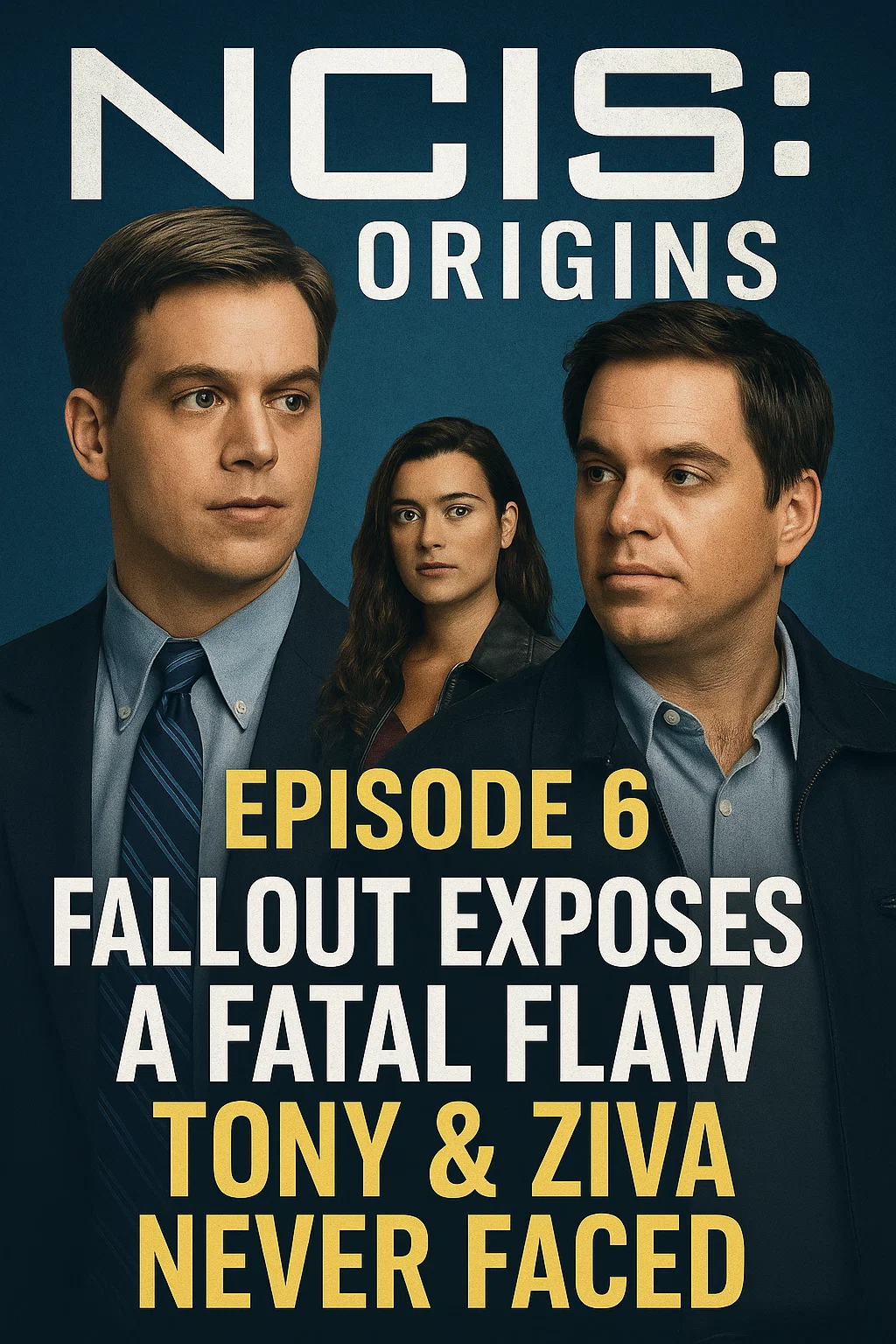
Introduction: A Controversial Turning Point
When NCIS: Origins debuted, fans were excited for a chance to revisit the early years of Leroy Jethro Gibbs. The prequel promised the same blend of emotional storytelling and suspense that made the original NCIS a juggernaut. But when Episode 6 aired, what should have been a heart-wrenching chapter sparked debate instead.
A shocking “death” moment came and went, but the fallout—or lack thereof—left longtime fans unimpressed. For those who remember Tony DiNozzo and Ziva David’s legendary arcs on the flagship series, the difference in execution was glaring. Episode 6 didn’t just stumble; it highlighted a flaw NCIS: Origins can’t afford to ignore.
Why Tony & Ziva Became the Benchmark
Before we unpack the misstep, let’s revisit why Tony and Ziva’s arcs remain untouchable in NCIS history.
-
Chemistry that clicked: From their banter to their quiet moments, every scene between them carried tension and heart.
-
Earned stakes: When either character faced danger, the emotional stakes felt genuine because viewers had invested in their bond for years.
-
Fallout that lasted: Whether it was Ziva grieving her father or Tony carrying Kate’s death with him, the consequences of tragedy were never brushed aside.
When Ziva was presumed dead in Season 13, Tony’s response was raw and unforgettable. His decision to leave the team and raise their daughter wasn’t just a dramatic twist—it was the natural conclusion of his grief and love.
Episode 6 Fallout: What Went Wrong
Episode 6 of NCIS: Origins attempted to deliver its own shocking death. But instead of honoring the emotional weight, the show rushed through the aftermath. Characters seemed to “move on” within minutes, leaving audiences feeling like the moment was a checkbox rather than a turning point.
The issue wasn’t the twist itself—it was the lack of authentic fallout. Without lingering grief or long-term impact, the death felt disposable.
The Contrast With Tony & Ziva
The biggest difference between Origins and classic NCIS is emotional continuity.
-
Tony’s grief after Ziva’s presumed death redefined his entire arc.
-
Ziva’s trauma after losing her father shaped her decisions for seasons to come.
-
Gibbs’ haunted past consistently influenced his leadership style.
In Episode 6, however, fallout felt like an afterthought. Where Tony & Ziva’s stories breathed, Origins sprinted ahead.
Disposable Storytelling vs. Long-Form Arcs
What Episode 6 exposed is a modern TV problem: disposable storytelling. Shocking deaths or twists are thrown in for impact, but without emotional follow-through, they fade fast.
Classic NCIS understood that scars don’t vanish after one episode. Kate’s death haunted Tony for years. Ziva’s losses changed her worldview. Gibbs’ rules were born of his own tragedy. These arcs unfolded over seasons, not scenes.
Episode 6 missed that lesson, opting for shock value over staying power.
Fan Backlash Online
It didn’t take long for fans to voice their frustration. Social media lit up with comments like:
-
“Tony would never have brushed off Ziva’s death like that.”
-
“This doesn’t feel like NCIS anymore.”
-
“Where’s the fallout? It’s like nothing matters.”
For a franchise built on character loyalty, dismissing emotional depth risks alienating its most devoted audience.
The Bigger Problem With NCIS: Origins
The mishandling of Episode 6 points to a pacing issue. Modern NCIS stories often cram too much into one episode, leaving little room for natural reactions. By contrast, Tony & Ziva’s arcs thrived on the slow burn. Their stories stretched across years, layering tension and payoff in equal measure.
Without that breathing room, Origins risks becoming a highlight reel rather than a meaningful drama.
How Tony & Ziva’s Legacy Could Save the Day
The solution isn’t complicated: slow down and let fallout breathe. Imagine if Episode 6 had lingered on grief, allowed characters to process loss, and built consequences that ripple into future episodes. That’s what made Tony’s departure after Ziva’s presumed death so powerful—and unforgettable.
By learning from their arcs, Origins could regain the emotional weight that defined the original.
The Risk of Losing Loyal Fans
The NCIS franchise thrives on fan loyalty. But if Origins continues to gloss over fallout, it risks losing the trust of viewers who came for Gibbs’ backstory but stayed for character-driven storytelling. Loyal fans don’t just want action—they want heart. Without it, the show risks feeling hollow.

The Lesson for Modern TV Writing
Episode 6 underscores a larger truth: shock value without emotional continuity doesn’t last. Audiences remember grief, love, and sacrifice far longer than a one-off twist. That’s why Tony & Ziva’s arcs remain iconic years later, while Episode 6 already feels forgettable.
Conclusion: Why Tony & Ziva Never Had This Problem
Tony and Ziva’s arcs worked because the writers respected the fallout. They allowed grief to change characters, love to alter choices, and loss to leave scars. Episode 6 of NCIS: Origins failed not because of its twist, but because it forgot that true impact comes from continuity.
Tony & Ziva never had that problem—because their stories weren’t disposable. They were timeless.